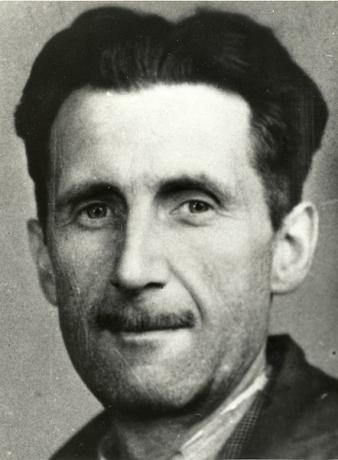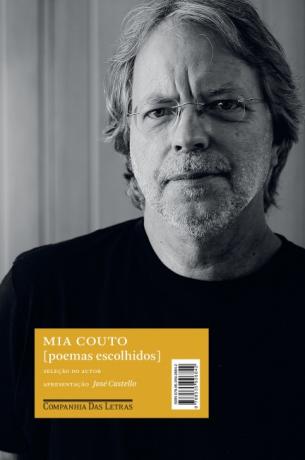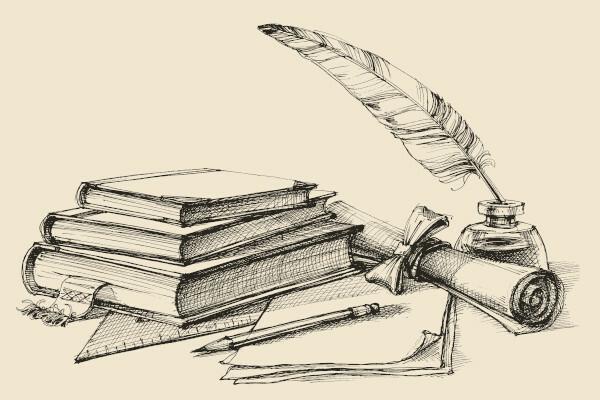levTolstoyis a russian writer born September 9, 1828. Family's aristocrat, was orphaned by his father and mother still in his childhood. He later started law school, but dropped out soon after, and participated in the Crimean War. His success as a writer occurred with the publication of his first three works, a trilogy composed by the books Childhood, Adolescence and Youth. However, his best known works are War and peace and Anna Karenina.
The writer converted to Christianity in the 1870s. However, he had ideas of his own, so he severely criticized the Christian churches and was excommunicated by the Russian Orthodox Church in 1901. His particular view of Christianity, however, won several adherents. So, Tolstoy, the main representative of russian realism, wrote works marked by moral indoctrination, critical nationalism and social themes, before his death on November 20, 1910.
Read more: Realism in Brazil – a literary movement that had Machado de Assis as an exponent
Tolstoy Biography

Leo Tolstoy was born on September 9, 1828, in Russia. Descended from aristocrats, he lost his mother, a countess, when he was a year old. His father was an earl and died when he was around nine years old. Thus, the boy and his brothers have just been raised by an aunt. In 1844, Tolstoy entered the University of Kazan to study oriental languages.
He also decided to study law, but in 1847 he dropped out of university without finishing the course. In the following years, he participated in the Crimean War (1853-1856) and he was successful with the publication, between 1852 and 1856, of his trilogy — Childhood, Adolescence and Youth. He built schools for the peasants' children. However, for this reason, he suffered persecution from the tsarist police, who did not admit freedom in school education.
Do not stop now... There's more after the advertising ;)
Married in 1862, he had 13 children. After finishing the novel Anna Karenina, Tolstoy, in the late 1870s, entered existential crisis and ended up finding the Christian faith. However, made harsh criticisms of the Russian Orthodox Church and was excommunicated in 1901. The author argued that Christian churches were corrupt and out of step with the true christianity.
Thus, did a rereading of the figure of Christ and laid out the foundations of his Christianity:
- don't get angry;
- not wanting;
- not taking oaths;
- not resisting evil;
- love the enemies.
Tolstoy's philosophy ended up influencing personalities like Mahatma Gandhi (1869-1948). Tolstoy, therefore, turned into a pacifist anarchist and went on to attack military service, the vote, and the courts.
After his conversion, the writer's family did not share his new ideas, which ended up gaining followers and disciples. THE philosophy Leo Tolstoy's religious belief damaged his marriage. Only his daughter Aleksandra, heiress of the writer, who, due to health problems, was on his side. died at the train station in Astapovo, after an exhausting day of travel, on November 20, 1910.
Literary Characteristics of Leo Tolstoy
Leo Tolstoy is a writer for russian realism. Due to this, and also to the author's peculiarities, his works are marked by the characteristics presented below.
- Nationalism critical
- moral indoctrination
- adultery theme
- psychological narrative
- sociopolitical theme
- customs criticism
- Characters tragic
- Criticism of the aristocracy
- Focus on details
- stream of consciousness
- satire and irony
- didactic character
- Criticism of Christian Religions
- Contradiction: skepticism and dogmatism
Read too: Naturalism - literary movement based on scientific currents
Tolstoy's Works
![Cover of the book “Guerra e paz”, by Leo or Leon Tolstoi, published with the Nova Fronteira stamp, by Ediouro Publications. [1]](/f/a7baec57bcd5bf85a79978868efddec2.jpg)
novels and novels
- Childhood (1852)
- Adolescence (1854)
- Youth (1856)
- marital happiness (1859)
- the cossacks (1863)
- War and peace (1869)
- Anna Karenina (1877)
- The Death of Ivan Ilitch (1886)
- The Kreutzer Sonata (1889)
- The devil (1889)
- Resurrection (1899)
- fake coupon (1904)
- Hadji Murat (1904)
Tales
- The invasion (1852)
- Tales of Sevastopol (1855-1856)
- the snow storm (1856)
- the owner's morning (1856)
- Lucerne (1857)
- Albert (1858)
- three deaths (1859)
- the porcelain doll (1863)
- God sees the truth but waits (1872)
- The prisoner in the Caucasus (1872)
- the bear hunter (1872)
- What do men live by? (1881)
- memories of a madman (1884)
- An unnoticed spark burns the house (1885)
- two old (1885)
- where love is, God is (1885)
- Ivan the fool (1885)
- evil souls (1885)
- children's wisdom (1885)
- the three hermits (1886)
- promoting a devil (1886)
- How much land does a man need? (1886)
- the grain (1886)
- Repentance (1886)
- The son of God (1886)
- a missed opportunity (1889)
- Françoise (1892)
- A conversation between idle people (1893)
- walk through the light while there is light (1893)
- master and man (1895)
- Too expensive (1897)
- Father Sergio (1898)
- Esarhaddon, king of Assyria (1903)
- work, death and illness (1903)
- three questions (1903)
- divine and human (1906)
War and peace
War and Peace is Tolstoy's most famous work. the book is a historical novel against the background of the Napoleonic invasion. Napoleon Bonaparte (1769-1821) is one of the characters, in addition to Tsar Alexander I (1777-1825). Alongside these historical characters are the fictional ones.
Thus, the action begins in 1805, with the introduction to readers of the Russian aristocracy, such as the family of Count Ilia Rostov, father of Natasha and soldier Nicholas; and Lisa's husband, Prince André Bolkonski, who seeks glory by joining the army but revises his values when he is wounded:
"Even if five minutes before Andrew he had been able to say a few words to the soldiers transporting him, now he was silent, his eyes fixed on Napoleon. They seemed to him so mediocre at that moment the interests that preoccupied the emperor, the very hero who seemed so insignificant to him, with his petty vanity and the joy of victory, when he compared it all to the spectacle of that immense sky, [...].”
At the second book, Nicholas returns home, in Moscow, in 1806. The old countess intends to “marry well” her children, but Natasha refuses Denissov, and Nicolau intends to marry his poor and orphan cousin Sonia for love. Pedro Bezukov receives an inheritance and marries the adulteress Helena. immersed in existential conflicts, Bezukov seeks to attain a superior moral state. Natacha is in love with André, a widower, because Lisa dies in childbirth. However, Pedro falls in love with Natacha:
“This sweet, tender voice, in which a deep note vibrated, surprised Natacha.
— Let's leave that, my friend, I will tell you everything, but I ask only one thing; is that from today to the future consider me your friend. If you need help, if you need advice, if you ever feel the need to open your heart to someone, not now, when you can look within yourself clearly, remember me. He took her hand and kissed it. "I'll be very happy if I'm able to..."
Peter was upset.
— Don't talk to me like that, I don't deserve it! exclaimed Natacha, making a move to leave. Peter, however, withheld it. He knew there was still something to tell her. However, what his words were uttered, he was surprised himself.
"No, no, don't say that: you have your whole life before you," he murmured.
[...]”
Natacha, in the third book of the novel, she decides to end her relationship with André, but becomes ill, and is supported by Pedro, in addition to strengthening herself in her faith religious. Already his brother Nicolau begins to get involved with Maria Bolkonskaia, a threat to Sonia. Meanwhile, the country is at war with Napoleon:
“This patrol was part of the number of patrols [...] with the mission of hunting down robbers and especially to get hold of the bandits who, according to the opinion at that time dominant in the french high command, had burned Moscow. After crossing several streets, the patrol also laid hands on five suspected Russians, an apothecary, two seminarians, a peasant, a lackey, and a certain number of robbers. But, of all the suspects, Peter seemed the most dangerous. When they were taken to the military prison, established in a mansion on the Zubovo wall, he was isolated from the others and subjected to strict surveillance.”

At the last book, facing a Russia invaded by Napoleon's army, Pedro decides to assassinate Bonaparte. To do this, he assumes the false identity of a servant, but is captured. As a prisoner of war, he meets the honest Plato Karataev, a non-aristocrat, a worker that inspires the hero to live in simplicity. Thus, in the epilogue, Pedro is freed and, after Helena's death, he can marry Natacha, while Russia is rebuilt after the insane war:
"If the purpose of the wars at the beginning of the century was the greatness of russia, this could have been achieved without any of the preceding wars and without the invasion. If that purpose was the greatness of France, it had been possible to achieve it without the Revolution and without the Empire. If it were the propagation of certain ideas, the press had been able to perform far better than the soldiers. If it was the progress of civilization, we have to agree that there are more effective ways than the destruction of people and wealth.”|1|
See too: Anguish: novel by Graciliano Ramos
Tolstoy's Phrases
Next, let's read a few sentences|2| by Leo Tolstoy, taken from his nonfiction book What is art?:
"Art is, like the word, one of the instruments of union between men."
"Humanity is inclined to go from a lower, partial and obscure conception of life to a higher, general and clearer conception."
"He who sincerely reflects, sees that the art of the upper classes can never be the art of an entire nation."
"Art is a moral instrument of human life and, as such, it cannot be completely destroyed."
"The fact that, accustomed to one art, I become incapable of understanding another, does not entitle me to to affirm that the one I admire is the only true one, and that the one I don't understand is a false art and bad."
“Art is not a craft, but the transmission of the feeling that the artist experiences.”
“The artists of the future will not belong, as they are now, to a certain class of people; all who are capable of artistic creation will be artists.”
"Art and science are as closely related as the lungs and the heart."
"True science shows men the knowledge that should matter most to them."
“Art is not a joy, nor a pleasure, nor a diversion; art is a great thing.”
"The work of Christian art is to bring about the fraternal union of men."
Grades
|1| Translated by José Garibaldi Viegas Falcão.
|2| Translation of Spanish phrases into Portuguese by Warley Souza.
Image credit
[1] Ediouro (reproduction)
by Warley Souza
Literature teacher



